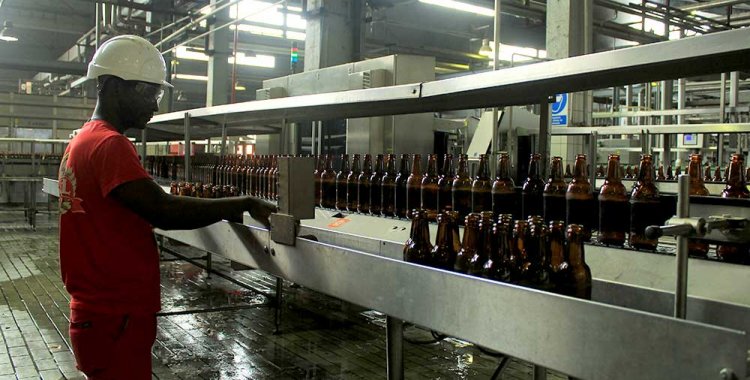According to Restiny Henrique, in statements to Lusa, the harmful measures imposed by the Castel Angola group, maker of Cuca beer, are at stake, which “violate” the laws of commercial activities and competition.
Restiny Henrique explained that the business group of French origin determines the purchase and sale price of its products and gives competitive advantages to a group of 15 distribution companies, determining the bonus margin.
"This Castel Angola group sells you expensive and sells the beer cheap, determining a 4 percent discount that it never returned and this created a very big financial damage to our members", said the president of AGDBAA.
The decisions of Castel Angola, which owns beverage production units across the country, have “harmful consequences” for its members, noted the official, indicating that the situation has lasted since 2015.
These “harmful measures imposed” by the producer, whose portfolio includes the brands of beers Cuca, Eka, Nocal, soft drinks and energy drinks, contributed to the bankruptcy of more than 40 companies affiliated to the association, accused Restiny Henrique.
The president of AGDBAA, who displayed a series of documents to substantiate his arguments, also reported on a study carried out by the association reflecting annual losses of more than 8.8 million kwanzas at company level, as a result of the measures taken by Castel Angola .
“According to the study we carried out, a company that sold 50,000 crates per month lost more than 8.8 million kwanzas in a year”, underlined Henrique, adding that eight of the more than 40 bankrupt companies claim damages of more than 1.1 billion of kwanzas.
“The bankruptcy of these companies brought enormous consequences for families with the unemployment of those responsible for them and they also stopped contributing taxes to the State, because after Unitel and Sonangol, the beverage sector was the third largest taxpayer in the State”, he pointed out. .
The association, according to Restiny Henrique, sent a case to the Attorney General's Office (PGR), "with all the documentary evidence", accusing Castel Angola of the crime of "fraud by fraud", but the case was "strangely filed" by the Luanda PGR.
The bankruptcy of beverage wholesalers and distributors in Angola has already been reported to President João Lourenço, the Ministries of Industry and Commerce, Finance and the Economy and Finance Commission of the National Assembly.
On the subject, proceedings are also underway with the Angolan Competition Regulatory Authority (ARC), a body under the Ministry of Finance.
In a certificate that Lusa had access to, ARC confirms that “records in the investigation phase of the sanctioning process” are running in the food and beverage distribution sector, with three companies from the Castel Angola group having been set up.
The records, says the ARC certificate dated 16 June 2021, were opened following the filing of the complaint, “with strong evidence of the alleged commission of offenses that constitute restrictive competition practices”.
“The process has been in progress since January 21, 2020, in accordance with the provisions of paragraph 1 of article 27 of Law nº 5/18, Competition Law”, reads in the document.
Restiny Henrique also complained about 'lobbies' in the beverage and food production and distribution chain, noting that, in Angola, many of the producers are both wholesalers and/or retailers, situations that "blemish" healthy competition.
“We need to invest in industry to create social peace. Angola can do more, but the 'lobbies' condition the growth of our country", concluded the president of AGDBAA.
The Lusa agency contacted, by telephone, the marketing manager of the Castel group, Sara Bayyurt, to comment on the accusations, but she said she was not the right person to speak.
A message sent, asking for the phone number or 'email' of the person responsible in the Castel group for contacts with the media, also went unanswered.






